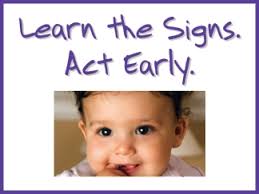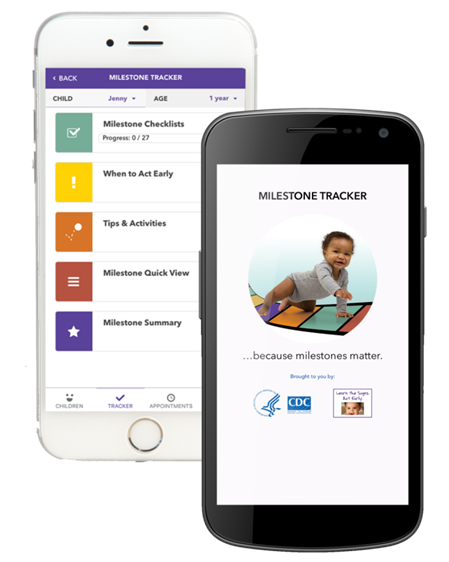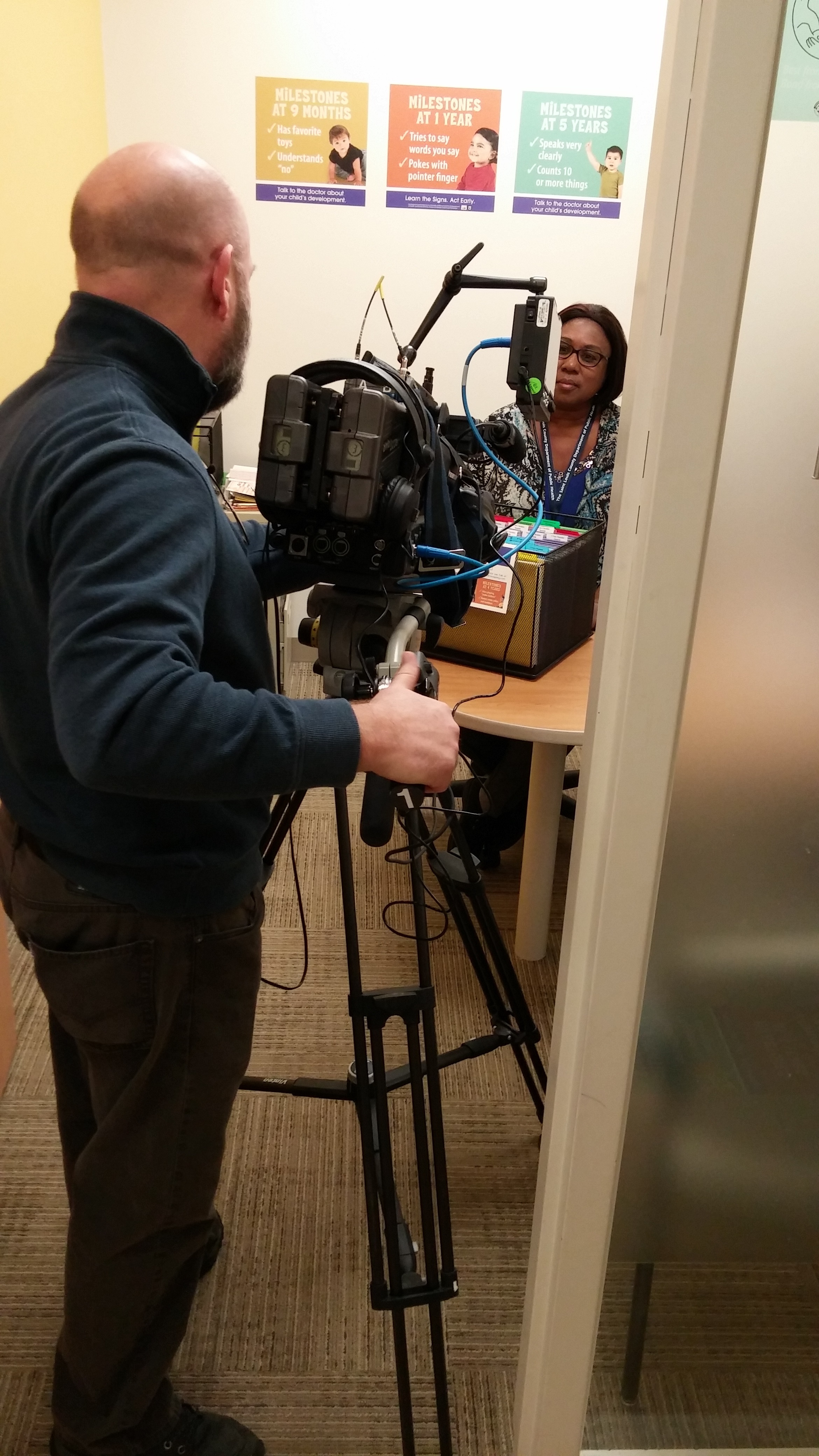|
Summer Issue, 2017
NEWS FROM ACT EARLY NETWORK PARTNERS |
Act Early Webinar on August 2 at 2p-3p ET: "Improving Early Identification and Intervention for Children at Risk for Autism Spectrum Disorder"  Please join the Act Early summer webinar, "Improving Early Identification and Intervention for Children at Risk for Autism Spectrum Disorder" on Wednesday, August 2 at 2pm-3pm ET to learn about the statewide system change work of the South Carolina Act Early Team. The SC Act Early State Team implemented a novel statewide effort to increase early identification of young children at risk for Autism Spectrum Disorder using a two-tiered screening process with enhanced quality assessment, interagency policy collaboration and coordination. The project and study demonstrated that improvements in early identification and intervention are feasible through collaborative policy change in a manner that should be replicable in other states for the benefit of young children with ASD. David Rotholz, Executive Director and Professor of Clinical Pediatrics and Co-Director of SC LEND and Ann Kinsman, SC LEND Co-Director and Professional Development Director will present their project, findings, and information on how states can replicate their effective strategies. You will be able to submit questions for responses from our speakers. Please register for the webinar by clicking here. Please join the Act Early summer webinar, "Improving Early Identification and Intervention for Children at Risk for Autism Spectrum Disorder" on Wednesday, August 2 at 2pm-3pm ET to learn about the statewide system change work of the South Carolina Act Early Team. The SC Act Early State Team implemented a novel statewide effort to increase early identification of young children at risk for Autism Spectrum Disorder using a two-tiered screening process with enhanced quality assessment, interagency policy collaboration and coordination. The project and study demonstrated that improvements in early identification and intervention are feasible through collaborative policy change in a manner that should be replicable in other states for the benefit of young children with ASD. David Rotholz, Executive Director and Professor of Clinical Pediatrics and Co-Director of SC LEND and Ann Kinsman, SC LEND Co-Director and Professional Development Director will present their project, findings, and information on how states can replicate their effective strategies. You will be able to submit questions for responses from our speakers. Please register for the webinar by clicking here.
. . . . . . . . . . . . . . . .
|
New App from the CDC to Track Children's Milestones - Feedback Welcome  CDC's Milestone Tracker app, developed by the "Learn the Signs. Act Early." program, provides a fun and simple way for parents to track their child's early developmental milestones. The app features interactive milestone checklists for children ages 2 months through 5 years, photos and videos to help parents recognize milestones, tips and activities for supporting early development, an easy way to share developmental progress with their healthcare provider and others, and appointment and developmental screening reminders. CDC welcomes your feedback as they make improvements and work toward an updated release along with Android this fall. Share your feedback with [email protected]. CDC's Milestone Tracker app, developed by the "Learn the Signs. Act Early." program, provides a fun and simple way for parents to track their child's early developmental milestones. The app features interactive milestone checklists for children ages 2 months through 5 years, photos and videos to help parents recognize milestones, tips and activities for supporting early development, an easy way to share developmental progress with their healthcare provider and others, and appointment and developmental screening reminders. CDC welcomes your feedback as they make improvements and work toward an updated release along with Android this fall. Share your feedback with [email protected].

. . . . . . . . . . . . . . . .
|
"Where is Bear?" Wins 2017 PRSA Bronze Anvil Award  "Where is Bear?" is the winner of the 2017 Public Relations Society of America (PRSA) Bronze Anvil Award! Only 43 winners were selected within their respective categories out of 564 entries. PRSA is the nation's largest professional organization serving the communications community. "Where is Bear?" is the winner of the 2017 Public Relations Society of America (PRSA) Bronze Anvil Award! Only 43 winners were selected within their respective categories out of 564 entries. PRSA is the nation's largest professional organization serving the communications community.
 Since its release, more than 51,000 copies have been distributed (English and Spanish). The book features 2 year old developmental milestones caregivers should look for in children. You can order "Where is Bear?" and other free materials at the "Learn the Signs. Act Early." online store by clicking here. Since its release, more than 51,000 copies have been distributed (English and Spanish). The book features 2 year old developmental milestones caregivers should look for in children. You can order "Where is Bear?" and other free materials at the "Learn the Signs. Act Early." online store by clicking here.
. . . . . . . . . . . . . . . .
|
Missouri Partnership Expands WIC Developmental Milestones Program  Fueled by its positive impact on families and staff, the WIC Developmental Milestones Program is now being offered to WIC agencies throughout Missouri. The expansion is funded by the Missouri Department of Health and Senior Services and the Centers for Disease Control and Prevention. Fueled by its positive impact on families and staff, the WIC Developmental Milestones Program is now being offered to WIC agencies throughout Missouri. The expansion is funded by the Missouri Department of Health and Senior Services and the Centers for Disease Control and Prevention.
The program is built around the CDC's "Learn the Signs. Act Early." campaign. WIC staff at eight local agencies in eastern Missouri helped shape the WIC Developmental Milestones Program, ensuring that it fits easily into clinic flow. "Data from the first two phases showed that the program positively impacted families and children, with staff reporting that the program was easy to implement, often adding less than two minutes to certification and mid-certification appointments," notes Principal Investigator Janet E. Farmer, PhD, who heads the project for the University of Missouri.
The program uses a set of checklists and family-friendly wall and floor graphics to increase parents' awareness of developmental milestones and to promote the early identification of potential developmental delay. All program information, materials, and training tools are available on the Missouri WIC website, facilitating participation for local WIC agencies(http://health.mo.gov/living/families/wic/wiclwp/wicdevelopmentalmilestonesprogram).
. . . . . . . . . . . . . . . .
|
|
|
NEWS FROM THE ACT EARLY NETWORK |
TRI and OHSU are Partners on a Study in Executive Function in Low Birth Weight and Preterm Infants and Toddlers  The Research Institute (TRI) at Western Oregon University (WOU) and Oregon Health & Science University (OHSU) are partnering for study on executive function in young children. Executive function (EF) refers a group of neurocognitive processes including self-regulation, working memory, cognitive shift, inhibition, goal selection and planning and organizing that result in intentional behavior. This study examines how infants and toddler who were born low birth weight (LBW) and preterm develop in these areas over time. Children and parents are seen at 6-8 months, 18 months, and 3 years of age. Several standard assessment* batteries are used depending on age, as well as parent questionnaires and a new computerized measure, EF-Touch. This study will enable us to better understand EF development over the first three years of life for infants and toddlers born with LBW and preterm. Outcomes include improved measurement of EF at an early age and interventions that can prepare these children for success during the school years and throughout life. The Research Institute (TRI) at Western Oregon University (WOU) and Oregon Health & Science University (OHSU) are partnering for study on executive function in young children. Executive function (EF) refers a group of neurocognitive processes including self-regulation, working memory, cognitive shift, inhibition, goal selection and planning and organizing that result in intentional behavior. This study examines how infants and toddler who were born low birth weight (LBW) and preterm develop in these areas over time. Children and parents are seen at 6-8 months, 18 months, and 3 years of age. Several standard assessment* batteries are used depending on age, as well as parent questionnaires and a new computerized measure, EF-Touch. This study will enable us to better understand EF development over the first three years of life for infants and toddlers born with LBW and preterm. Outcomes include improved measurement of EF at an early age and interventions that can prepare these children for success during the school years and throughout life.
*6 to 8 months: Bayley Scales of Infant and Toddler Development (BSID III) (Bayley, 2005), Dimensions of Mastery Questionnaire (DMQ 18) ) (Morgan, Busch-Rossnagel, Barrett, & Wang, 2009), 18 months: BSID III, DMQ 18, Child Behavior Checklist (Achenbach & Rescorla, 2001), 36 months: BSID III, DMQ 18, CBC, EF Touch (Willoughby, Wirth, & Blair, 2012; Willoughby, Kuhn, Blair, Samek, & List, 2016). Correspondence: Dr. Patricia M Blasco, [email protected] or [email protected] U S Department of Health and Human Services (Grant # 901F0084).
Information is only intended as general summary information that is made available to the public. It is not intended to provide specific medical advice or to take the place of either the written law or regulations.
. . . . . . . . . . . . . . . .
|
AAP's STAR Center Offers TA and Resources on Early Childhood Screening  What if you could get a fuller picture of a child's health and use this information to change the course of that child's life? You can do both of these things with the help of the Screening Technical Assistance & Resource (STAR) Center. This new offering from the American Academy of Pediatrics has the goal of increasing rates of early childhood screening, referral, and follow-up for developmental, maternal depression, and social determinants of health screenings. What if you could get a fuller picture of a child's health and use this information to change the course of that child's life? You can do both of these things with the help of the Screening Technical Assistance & Resource (STAR) Center. This new offering from the American Academy of Pediatrics has the goal of increasing rates of early childhood screening, referral, and follow-up for developmental, maternal depression, and social determinants of health screenings.
The STAR Center offers a website, aap.org/screening, with extensive resources as well as free, individualized assistance to those seeking to initiate or improve the early childhood screening process in their practice or health care system. Experts are available to provide advice on screening tools, payment, electronic medical record documentation, conversation tactics, workflow ideas, and how to make the case for screening within a larger health system. An interactive online course featuring conversation simulations as well as a webinar series will be available later this year. These resources are being developed with the insights and experiences of leaders in the field who have implemented family-centered early childhood screening processes in their own practices.
For assistance or to sign up for updates via the STAR Center eNewsletter, email [email protected].
. . . . . . . . . . . . . . . .
|
Connecticut Children's Provides Symposium for Families
 The Connecticut Children's Medical Center hosted a symposium for Parents of Children with Autism last month. The event drew almost 50 families from all corners of Connecticut to hear presentations on bullying, sleep, enhancing communication and evidence-based interventions. The Connecticut Children's Medical Center hosted a symposium for Parents of Children with Autism last month. The event drew almost 50 families from all corners of Connecticut to hear presentations on bullying, sleep, enhancing communication and evidence-based interventions.
Dr. Rob Keder, developmental pediatrician at Connecticut Children's and faculty at the University of Connecticut School of Medicine, spoke about "Dealing With Bullying and Autism" - addressing this widely-held concern with compassion, data, strategies and targeted resources.
Families spoke with representatives from the State of CT Office of Early Childhood Birth to Three System, Creative Interventions - a community-based private provider agency, Connecticut Children's Center for Care Coordination, and Autism Services & Resources Connecticut - an advocacy and training organization. "Then and Now" stories and photos were shared, Child Development Infoline information sheets and resource brochures were distributed and on-the-spot problem solving all contributed to this successful event.
One of the organizers, Laurie Derynioski said, "I've been wanting to offer this type of forum for a long time and our Connecticut Children's Community workforce group did an amazing job. We had so many people who wanted to be involved that we plan to host a second symposium in November. The need for information never stops."
. . . . . . . . . . . . . . . .
|
Early Detection Improved Vocabulary Scores in Children with Hearing Loss  Children with hearing loss in both ears had improved vocabulary skills if they met all of the Early Hearing Detection and Intervention guidelines, a small cross-sectional study found. Those children with bilateral hearing loss who met all three components of the Early Hearing Detection and Intervention guidelines (hearing screening by 1 month, diagnosis of hearing loss by 3 months and intervention by 6 months) had significantly higher vocabulary quotients, reported Christine Yoshinaga-Itano, PhD, of the University of Colorado Boulder. Children with hearing loss in both ears had improved vocabulary skills if they met all of the Early Hearing Detection and Intervention guidelines, a small cross-sectional study found. Those children with bilateral hearing loss who met all three components of the Early Hearing Detection and Intervention guidelines (hearing screening by 1 month, diagnosis of hearing loss by 3 months and intervention by 6 months) had significantly higher vocabulary quotients, reported Christine Yoshinaga-Itano, PhD, of the University of Colorado Boulder.
The authors added that recent research reported better language outcomes for children born in areas of the country during years where universal newborn hearing screening programs were implemented, and that these children also experienced long-term benefits in reading ability. The authors said that studies in the U.S. also reported better language outcomes for children whose hearing loss was identified early, who received hearing aids earlier or who began intervention services earlier. But those studies were limited in geographic scope or contained outdated definitions of "early" hearing loss. To read the full article, please click here.
. . . . . . . . . . . . . . . .
|
Risk Calculator Promising for Predicting Bipolar Disorder in Children  A risk-based calculator designed to assess youth with family histories of bipolar disorder may help predict who will develop the condition within 5 years, researchers found. Using existing data on a cohort of children whose parents had bipolar spectrum disorder, the tool identified which children, ages 6 to 17 years, would convert to new-onset bipolar spectrum disorder, and pinpointed symptoms that were important predictors, reported Daniella M. Hafeman, MD, of the University of Pittsburgh, and colleagues. A risk-based calculator designed to assess youth with family histories of bipolar disorder may help predict who will develop the condition within 5 years, researchers found. Using existing data on a cohort of children whose parents had bipolar spectrum disorder, the tool identified which children, ages 6 to 17 years, would convert to new-onset bipolar spectrum disorder, and pinpointed symptoms that were important predictors, reported Daniella M. Hafeman, MD, of the University of Pittsburgh, and colleagues.
The results were comparable to prior risk calculators used to identify a host of other diseases, including cardiovascular disease, colorectal cancer, and even psychosis, the authors wrote in JAMA Psychiatry. They noted that studies found early symptoms can precede the onset of bipolar disorder by at least 2 years and even up to 10 years, and noted that the most consistent symptom predictors are "subthreshold manic symptoms, subthreshold and full-threshold depressive symptoms, mood lability, and anxiety," but those are not necessarily predictive of bipolar disorder specifically. The authors emphasized the need to identify individuals who were at higher risk for developing the condition, particularly offspring of parents with bipolar disorder. But, they added, the use of risk calculators -- routinely used in other fields of medicine -- have had "limited" development in psychiatry, and most were for depression and psychosis. To read this entire article, please click here.
. . . . . . . . . . . . . . . .
|
|
|
New AAP Program- Screening in Practices Initiative  The Screening in Practices Initiative is designed to improve the health, wellness, and life course of children through practice and system-based interventions for early childhood screening, referral, and follow-up. One of the major components of the Initiative is the National Technical Assistance Resource Center on Screening, which provides evidence-informed technical assistance and resources to assist practices in implementing effective screening, referral, and follow-up for developmental milestones, maternal depression, and social determinants of health. Technical assistance is provided through a toll-free hotline, in-person and web-based trainings, and an online resource center. The Screening in Practices Initiative is designed to improve the health, wellness, and life course of children through practice and system-based interventions for early childhood screening, referral, and follow-up. One of the major components of the Initiative is the National Technical Assistance Resource Center on Screening, which provides evidence-informed technical assistance and resources to assist practices in implementing effective screening, referral, and follow-up for developmental milestones, maternal depression, and social determinants of health. Technical assistance is provided through a toll-free hotline, in-person and web-based trainings, and an online resource center.
. . . . . . . . . . . . . . . .
|
Vroom Brain Building Moments  There is no time in life when the brain develops more rapidly than during the first five years. So by building children's brains from the earliest ages, parents can actually shape the foundation for future learning. New science reveals that children's first years are when they develop the foundation for all future learning. Vroom turns moments shared between parents and their young children into brain building moments. Whether it's mealtime, bath time, or anytime in between, there are always ways to nurture children's growing minds. To download the free Vroom tools and activities that parents can practice with their children, click here. There is no time in life when the brain develops more rapidly than during the first five years. So by building children's brains from the earliest ages, parents can actually shape the foundation for future learning. New science reveals that children's first years are when they develop the foundation for all future learning. Vroom turns moments shared between parents and their young children into brain building moments. Whether it's mealtime, bath time, or anytime in between, there are always ways to nurture children's growing minds. To download the free Vroom tools and activities that parents can practice with their children, click here.
Vroom created an app that makes it easy to access fun Vroom activities any time to make the most of these precious years when the foundation for all future learning is happening. Daily Vroom enhances the things parents already do and helps spark new ideas! Get a peek at how it works by watching the Daily Vroom video, and then download the free app for daily brain building fun on the go.
|
|
|


